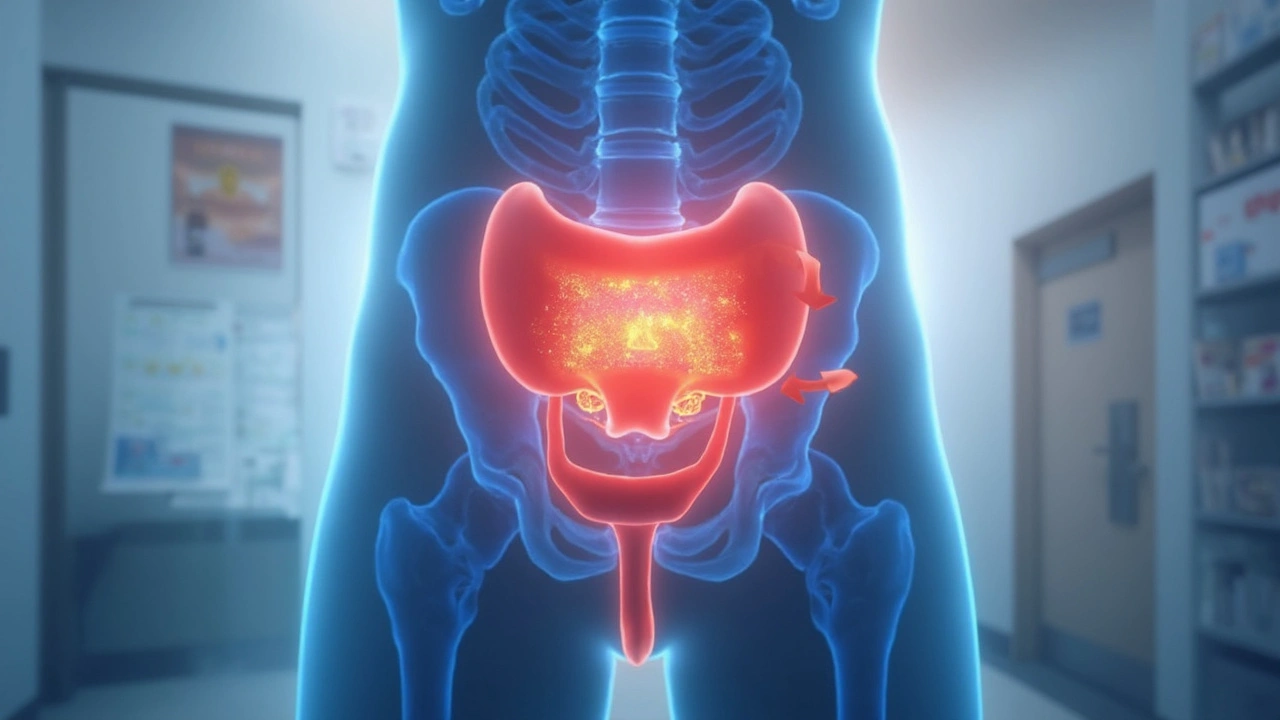Urinary Health: Simple Steps to Keep Your System Running Smoothly
Feeling a frequent urge to pee, pain when you go, or a cloudy urine color? Those are signs your urinary system might need a little attention. Your urinary system includes the kidneys, ureters, bladder, and urethra. When any part of it isn’t working right, you can notice symptoms fast. The good news is most issues can be helped with small lifestyle changes, good hydration, and the right medical advice.
Everyday Habits That Protect Your Bladder and Kidneys
First off, drink enough water. Aim for about 8 glasses a day, but a bit more if you sweat a lot or exercise. Water flushes out waste and keeps crystals from forming into kidney stones. If you tend to skip water because you’re busy, keep a bottle at your desk and sip regularly.
Second, watch what you eat. Too much salt can make your kidneys work harder and raise blood pressure, which hurts kidney function over time. Cutting back on processed foods and adding more fruits and veggies helps keep urine clear and reduces the risk of stones.
Third, limit caffeine and alcohol. Both can irritate the bladder and increase the need to pee often. If you notice a tight bladder after a coffee or a night out, try cutting back and see if symptoms improve.
Spotting Common Urinary Problems Early
A urinary tract infection (UTI) often starts with a burning sensation, a strong urge to go, or cloudy urine. Women get UTIs more often, but men can get them too. If you have these signs for a couple of days, a quick doctor visit can prevent the infection from spreading to the kidneys.
Kidney stones cause sharp pain in the back or side, sometimes radiating to the groin. They can also cause blood in the urine. Staying hydrated is the best defense, but if you’ve had stones before, your doctor might suggest specific dietary tweaks or medication.Overactive bladder leads to frequent trips to the bathroom, especially at night. Pelvic floor exercises, known as Kegels, can strengthen muscles and reduce urgency. If exercises don’t help, there are prescription options—just be sure to get them from a reputable pharmacy.
When any urinary symptom lasts more than a few days, worsens, or comes with fever, pain, or blood, it’s time to see a healthcare professional. Early diagnosis means quicker relief and less chance of complications.
Our site offers clear guides on many medicines that treat urinary issues, from antibiotics for UTIs to medications for overactive bladder. We also provide tips on buying these drugs safely online, so you know how to avoid scams and get genuine products.
Bottom line: stay hydrated, watch your diet, limit bladder irritants, and don’t ignore persistent symptoms. Small daily choices keep your kidneys, bladder, and urethra working the way they should, and you’ll feel more comfortable every day.
Urinary Retention and Its Surprising Connection to Bladder Cancer Risk

Holding it in too long? Turns out, it's not just uncomfortable—chronic urinary retention may increase the risk of bladder cancer. This article explains exactly how these two conditions are related, includes the latest medical facts, and gives practical tips for taking better care of your bladder. If you've been ignoring symptoms, you might want to read on.
